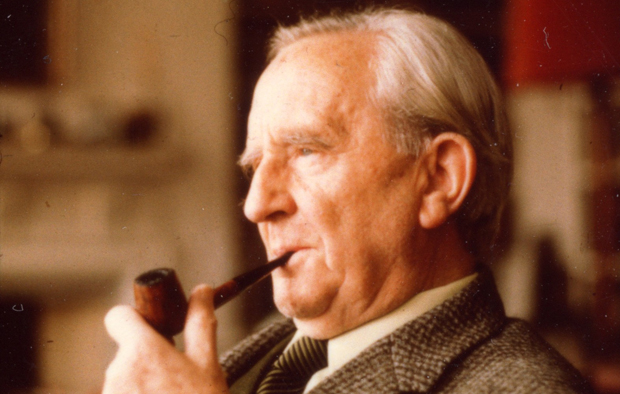In a recent interview with Rolling Stone George RR Martin had this to say about the differences between his work and that of JRR Tolkien.
“A major concern in A Song of Ice and Fire and Game of Thrones is power. Almost everybody – except maybe Daenerys, across the waters with her dragons – wields power badly.Ruling is hard. This was maybe my answer to Tolkien, whom, as much as I admire him, I do quibble with. Lord of the Rings had a very medieval philosophy: that if the king was a good man, the land would prosper. We look at real history and it’s not that simple. Tolkien can say that Aragorn became king and reigned for a hundred years, and he was wise and good. But Tolkien doesn’t ask the question: What was Aragorn’s tax policy? Did he maintain a standing army? What did he do in times of flood and famine? And what about all these orcs? By the end of the war, Sauron is gone but all of the orcs aren’t gone – they’re in the mountains. Did Aragorn pursue a policy of systematic genocide and kill them? Even the little baby orcs, in their little orc cradles?
In real life, real-life kings had real-life problems to deal with. Just being a good guy was not the answer. You had to make hard, hard decisions. Sometimes what seemed to be a good decision turned around and bit you in the ass; it was the law of unintended consequences. I’ve tried to get at some of these in my books. My people who are trying to rule don’t have an easy time of it. Just having good intentions doesn’t make you a wise king.”
To some degree, Martin’s point is well-taken. For all the detail of his worlds, Tolkien doesn’t often wade into the more prosaic details that some find so interesting. (Although I do suspect the rise of the wonk probably exacerbates this issue–few eras have been more obsessed with prosaic detail than our own.)
That said, I think he sells Tolkien a bit short as well. It’s actually not as hard to deduce Tolkien’s politics as is sometimes said. To take one example, consider Aragorn’s decree about the Shire after the Ring has been destroyed. He decrees that the Shire will be kept for the Hobbits alone, with no “Big People” being allowed in. In fact, Tolkien points out in one of the appendices that Aragorn himself never entered the Shire again after making that decree. That suggests that Tolkien believed a just king is a king who respects the way of life of other places and, as much as he can, attempts to protect it from outside forces, including himself.
Login to read more
Sign in or create a free account to access Subscriber-only content.
Topics:
